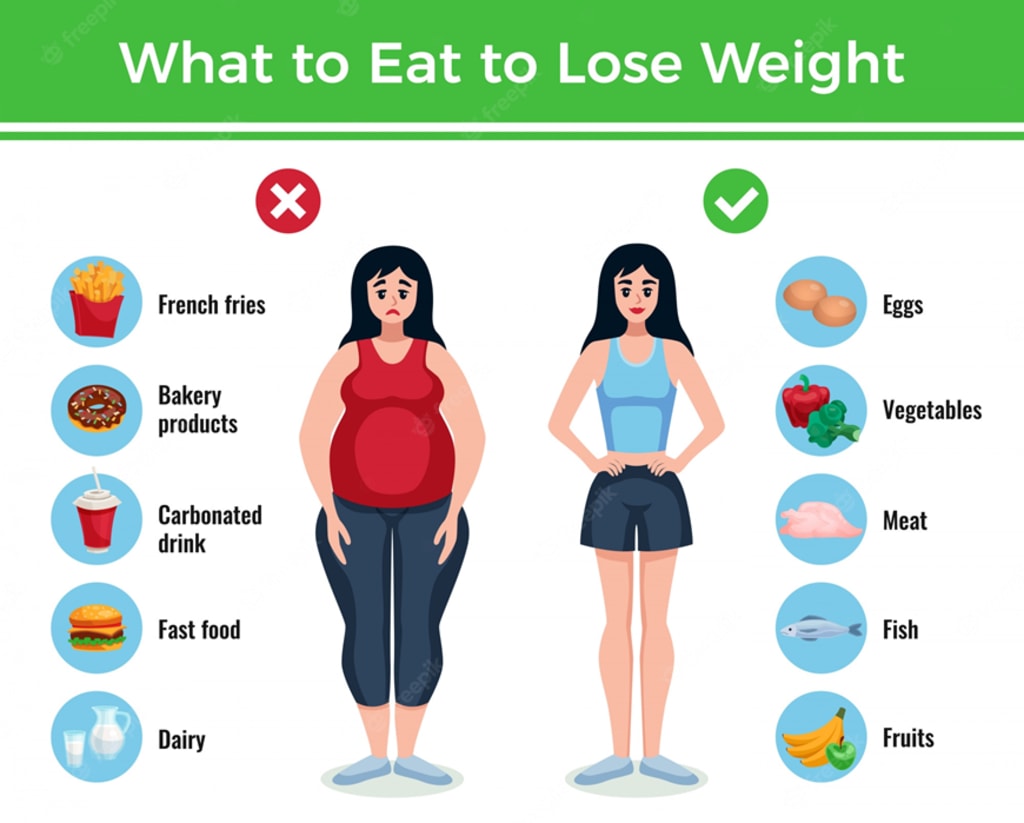Weight Gain

Weight Gain
Effective Strategies for Healthy Weight Gain
Weight gain is a topic that often gets overshadowed by the constant focus on weight loss in our society. While many people struggle to shed pounds, there are also those who are looking to gain weight in a healthy way. Whether you are trying to build muscle, recover from an illness, or simply want to feel more confident in your body, there are effective strategies you can implement to achieve your weight gain goals.
One of the most important things to keep in mind when trying to gain weight is that it should be done in a healthy and sustainable way. This means avoiding crash diets or excessive junk food consumption, as these can have negative effects on your overall health. Instead, focus on incorporating nutrient-dense foods into your diet that will help you gain weight in a way that supports your overall well-being.
One key strategy for healthy weight gain is to focus on increasing your calorie intake. This doesn’t mean you should just eat anything and everything in sight, but rather that you should be mindful of consuming enough calories to support weight gain. This can be achieved by adding healthy fats, proteins, and carbohydrates to your meals and snacks throughout the day.
In addition to increasing your calorie intake, it’s also important to pay attention to the quality of the foods you are eating. Opt for whole, unprocessed foods whenever possible, as these will provide your body with the nutrients it needs to support weight gain in a healthy way. Foods like nuts, seeds, avocados, and lean proteins are all great options for those looking to gain weight in a nutritious way.
Another important aspect of healthy weight gain is to focus on building muscle through strength training exercises. While it’s true that consuming more calories than you burn is essential for weight gain, simply eating more food without incorporating exercise can lead to unwanted fat gain. By engaging in regular strength training workouts, you can help build muscle mass and increase your overall body weight in a way that is beneficial for your health.
It’s also important to listen to your body and pay attention to hunger cues when trying to gain weight. This means eating when you are hungry and stopping when you are full, rather than forcing yourself to eat more than you need. By tuning into your body’s signals, you can ensure that you are fueling yourself properly and avoiding unnecessary weight gain.
In addition to focusing on your diet and exercise routine, it’s also important to prioritize self-care and stress management when trying to gain weight. Stress can have a negative impact on your body’s ability to gain weight, so finding ways to relax and unwind can be beneficial for your overall health. Whether it’s through meditation, yoga, or spending time with loved ones, taking care of your mental and emotional well-being is essential for healthy weight gain.
In conclusion, gaining weight in a healthy way is possible with the right strategies and mindset. By focusing on increasing your calorie intake with nutrient-dense foods, incorporating strength training exercises, listening to your body’s hunger cues, and prioritizing self-care, you can achieve your weight gain goals in a way that supports your overall health and well-being. Remember that everyone’s journey to weight gain is unique, so be patient with yourself and celebrate your progress along the way.
Common Causes of Unintentional Weight Gain
Weight gain is a common concern for many people, and it can be frustrating when the numbers on the scale start creeping up without any apparent reason. While intentional weight gain can be achieved through changes in diet and exercise, unintentional weight gain can be a sign of an underlying health issue. In this article, we will explore some common causes of unintentional weight gain and what you can do about it.
One of the most common causes of unintentional weight gain is a slow metabolism. Metabolism is the process by which your body converts food into energy. If your metabolism is slow, you may burn fewer calories at rest, leading to weight gain over time. Factors such as age, genetics, and hormonal imbalances can all contribute to a sluggish metabolism. To boost your metabolism, try incorporating more physical activity into your daily routine and eating a balanced diet rich in fruits, vegetables, and lean proteins.
Another common cause of unintentional weight gain is medication. Certain medications, such as antidepressants, antipsychotics, and corticosteroids, can cause weight gain as a side effect. If you suspect that your medication is contributing to your weight gain, talk to your healthcare provider about alternative options or strategies to manage your weight. It is important not to stop taking your medication without consulting a healthcare professional, as this can have serious consequences for your health.
Stress and emotional eating can also lead to unintentional weight gain. When we are stressed, our bodies release cortisol, a hormone that can increase appetite and lead to overeating. Emotional eating, or eating in response to emotions rather than hunger, can also contribute to weight gain. To combat stress-related weight gain, try incorporating stress-reducing activities into your daily routine, such as meditation, yoga, or exercise. Additionally, practicing mindful eating can help you become more aware of your hunger cues and prevent emotional eating.
Hormonal imbalances, such as hypothyroidism or polycystic ovary syndrome (PCOS), can also cause unintentional weight gain. These conditions can disrupt the body’s natural hormone levels, leading to changes in metabolism and appetite regulation. If you suspect that a hormonal imbalance is contributing to your weight gain, talk to your healthcare provider about getting tested and exploring treatment options. Managing your hormonal health can help you maintain a healthy weight and overall well-being.
In conclusion, unintentional weight gain can be caused by a variety of factors, including a slow metabolism, medication side effects, stress and emotional eating, and hormonal imbalances. By identifying the underlying cause of your weight gain and taking proactive steps to address it, you can achieve a healthy weight and improve your overall health. Remember to consult with a healthcare professional before making any significant changes to your diet, exercise routine, or medication regimen. With the right support and guidance, you can take control of your weight and live a healthier, happier life.
How to Maintain a Balanced Diet for Weight Gain
Weight gain is a topic that often gets overshadowed by the constant focus on weight loss in today’s society. While many people struggle to shed pounds, there are also those who are looking to gain weight in a healthy and sustainable way. Whether you are trying to build muscle, recover from an illness, or simply want to feel more energized and nourished, maintaining a balanced diet is key to achieving your weight gain goals.
One of the most important things to keep in mind when trying to gain weight is the quality of the calories you consume. It’s easy to fall into the trap of eating high-calorie, low-nutrient foods like fast food and sugary snacks, but this can lead to weight gain in the form of unhealthy fat rather than muscle mass. Instead, focus on incorporating nutrient-dense foods into your diet, such as lean proteins, whole grains, fruits, vegetables, and healthy fats.
Protein is essential for building and repairing muscle tissue, so be sure to include plenty of protein-rich foods in your diet. Good sources of protein include lean meats, poultry, fish, eggs, dairy products, legumes, nuts, and seeds. Aim to include a source of protein in every meal and snack to support your body’s muscle-building efforts.
In addition to protein, carbohydrates are also important for providing your body with the energy it needs to fuel your workouts and daily activities. Choose complex carbohydrates like whole grains, fruits, and vegetables, which provide a steady source of energy and are rich in vitamins, minerals, and fiber. Avoid simple carbohydrates like white bread, sugary cereals, and pastries, which can cause blood sugar spikes and crashes that leave you feeling tired and hungry.
Healthy fats are another important component of a balanced diet for weight gain. Fats are more calorie-dense than protein and carbohydrates, so adding healthy fats to your meals can help increase your overall calorie intake. Choose sources of unsaturated fats like avocados, nuts, seeds, olive oil, and fatty fish, which provide essential fatty acids that support brain function, hormone production, and overall health.
When trying to gain weight, it’s important to listen to your body’s hunger cues and eat when you’re hungry. This may mean eating more frequently throughout the day or increasing your portion sizes at meals. Pay attention to how your body responds to different foods and adjust your diet accordingly to ensure you’re getting the nutrients you need to support your weight gain goals.
In addition to focusing on the quality of your calories, it’s also important to pay attention to your overall calorie intake. To gain weight, you need to consume more calories than your body burns through daily activities and exercise. Keep track of your calorie intake by logging your meals and snacks in a food diary or using a calorie-tracking app to ensure you’re meeting your calorie goals.
Finally, don’t forget to stay hydrated. Drinking enough water is essential for overall health and can help support your body’s digestion, nutrient absorption, and muscle function. Aim to drink at least eight glasses of water per day, and consider adding electrolyte-rich beverages like coconut water or sports drinks if you’re engaging in intense physical activity.
In conclusion, maintaining a balanced diet is essential for healthy weight gain. Focus on eating nutrient-dense foods, including plenty of protein, complex carbohydrates, healthy fats, and staying hydrated to support your body’s muscle-building efforts. Listen to your body’s hunger cues, track your calorie intake, and make adjustments as needed to ensure you’re meeting your weight gain goals in a sustainable and nourishing way.







